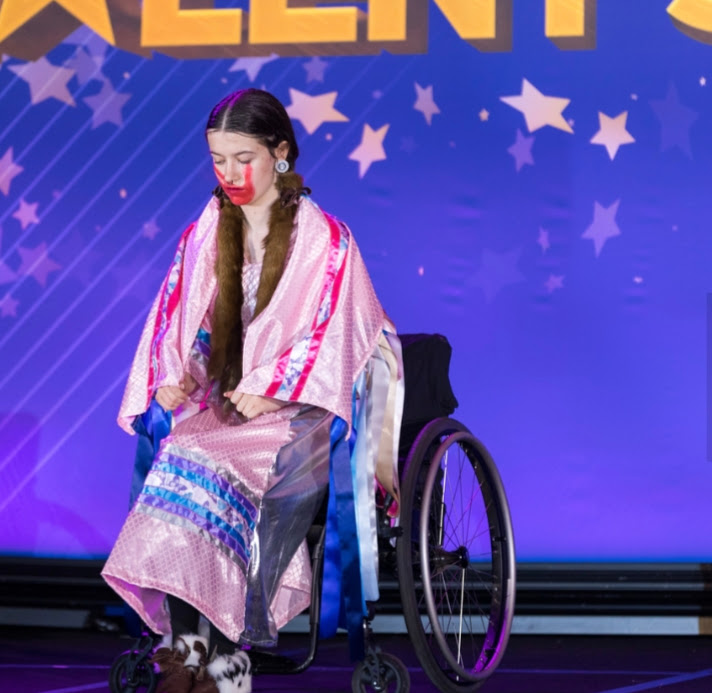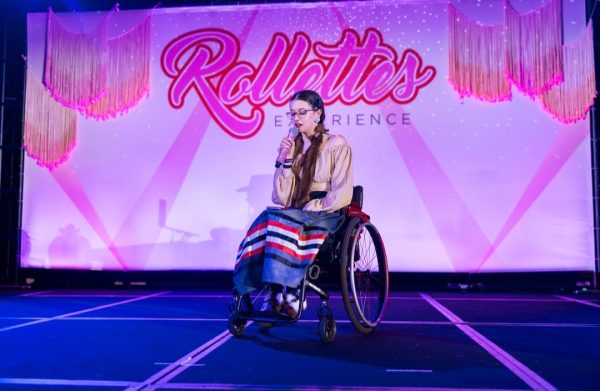Native grief is such a unique feeling. We attend more funerals than weddings in our lifetime. It feels like every other day I am hearing about another relative being murdered or going missing, and more importantly, that no one truly cares beyond the native community. And even during this ongoing crisis, which has been longer than I’ve been alive, we are expected to show up as if nothing is wrong. There is no room for native grief in society because then our oppressors have to admit they’re oppressing us.
Native grief sits opposite native joy and next to indigenous resilience. Native joy is welcomed, wanted even, but only in a digestible manner. Indigenous resilience is forgotten altogether. They want our joy when it benefits them, our grief when it lines their pockets. All we want is to heal.
Heal from genocide. Heal from the erasure that is continuing to oppress our people.
As a mixed native, one who is more white-presenting, I have been in these rooms. I am often the crux of these rooms, the one ticking a “diversity quota.” The one who is shelling out free labor in hopes people will do the work, then silenced when I speak out. I’m sure my more melanated natives understand this struggle and more, beyond what I will ever experience. And so often, my voice is heard over theirs. My voice is the one taken as truth. I should not be the first or only voice for native peoples. Because society has placed me in this role – “the token native.” I have a duty to always fight for this community. Even where it doesn’t benefit me the most. I don’t fight for me. I fight for all natives.
Loudly. Publicly.
There comes a point where fighting in private is counterproductive. I am always one to respond to my elders before my peers or any colonial structure. They have lived this life and these hardships. They have fought their way to the top. I am here to protect their legacy.
I have fought in private for weeks after being tokenized this summer, and the lateral violence I have experienced in my own community has been disheartening. The lack of research into cultural sensitivity, and now being told the work is “internal” with lukewarm responses from those in charge, I am choosing to be public. Not with who, but what. As my tokenizing only serves to prove the point that I, someone who looks most like them, will be heard over others.
I recently was given a seminar with terribly lacking advertisement in comparison to the other scheduled events, and a land acknowledgement that only occurred when a friend advocated on my behalf. The apologies after, I feel, focused on my feelings over the impact. Intentions don’t override impact. This method of tokenizing is something I have seen repeatedly. The cycle goes: Appropriation, Tokenizing, “Internal Work.” Repeat. Internal work doesn’t mitigate the external harm. Internal work doesn’t always address how minor oversights impact larger communities.
This came at a hard time for my family, as two weeks after, I lost two friends due to systemic issues within the native community, and recently, a relative due to racial violence. Three people gone far too soon. Our grief and resilience is ignored, but they want our joy. This event absolutely loved our culture when it was palatable to them, not once did they acknowledge the ongoing crisis. It’s fun to be native when you get to ignore the hardships and struggles. It’s fun to be indigenous when you don’t know anything about our history. Then, they want natives to spoon-feed you your history.
I love being indigenous more than anything in this life, but it doesn’t come without extreme hardships. Many of our people are extremely poor, many don’t have clean water, adequate food, appropriate healthcare, and so much more. Many struggle to learn our language and have to grapple with the devastating effects of residential schools. A lot of our residential school survivors are still living. I fight every single day to better my community. To represent my tribes, my family. Because unlike some, my identity doesn’t shift or fold the moment I step into a new room. It grows and forces space to exist, even when it makes the majority uncomfortable.





